
by Ms. V. (South Korea) | May 21, 2013 | 2013, Human Rights, Humanity, International, Korea, N. Korea, South Korea, World Moms Blog, World Voice

As the world watches and wonders what, if anything, is going to transpire as a result of North Korea’s recent threats against South Korea and the US, we sit here in Seoul going about life as usual. Indeed if it weren’t for the international news coverage, I could have easily remained blissfully unaware of what our neighbor to the north has been up to these past few weeks.
Perhaps because they are used to it, or perhaps because stopping everything is simply not an option, South Koreans continue on with life. I suspect it’s a combination of the two. If there is a great deal of fear about the threats, it is not apparent. There seems to be more of a sense of annoyance that we have to play out this charade once again. It is incredibly frustrating that North Korea can set a whole region of the world on edge with these oft-repeated promises of obliteration. (more…)
Ms. V returned from a 3-year stint in Seoul, South Korea and is now living in the US in the beautiful Pacific Northwest with her partner, their two kids, three ferocious felines, and a dog named Avon Barksdale. She grew up all over the US, mostly along the east coast, but lived in New York City longer than anywhere else, so considers NYC “home.” Her love of travel has taken her all over the world and to all but four of the 50 states.
Ms. V is contemplative and sacred activist, exploring the intersection of yoga, new monasticism, feminism and social change. She is the co-director and co-founder of Samdhana-Karana Yoga: A Healing Arts Center, a non-profit yoga studio and the spiritual director for Hab Community. While not marveling at her beautiful children, she enjoys reading, cooking, and has dreams of one day sleeping again.
More Posts
Follow Me:

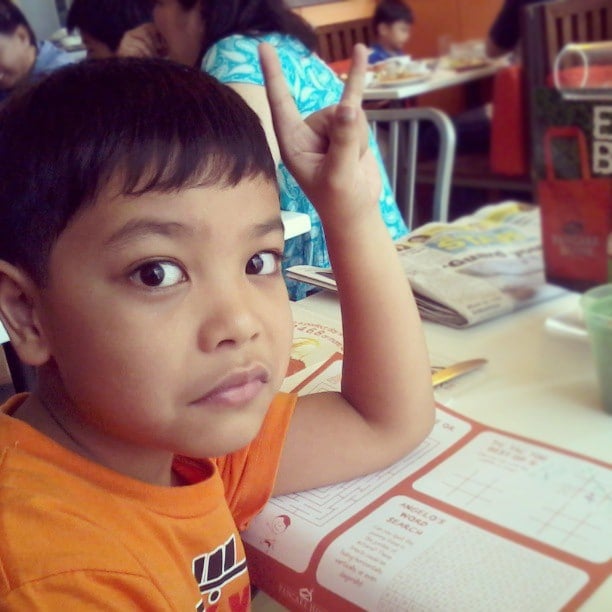
by Patricia Cuyugan (Philippines) | May 16, 2013 | Parenting, Philippines, World Motherhood
 Earlier today my son had a minor dramatic episode at home. It was time to cut his finger nails, and when we got to the pinkie finger of the first hand, he started whining that he was getting hurt. I was in a bit of a bad mood, and I would not have any of it.
Earlier today my son had a minor dramatic episode at home. It was time to cut his finger nails, and when we got to the pinkie finger of the first hand, he started whining that he was getting hurt. I was in a bit of a bad mood, and I would not have any of it.
Now, I’m sure this goes for all moms – I really do take extra care when cutting my kid’s nails. For one, cutting someone else’s nails really freak me out. Plus my mom used cut our nails as short as she possibly could when we were small, and so we’d go through maybe a day or two with tender finger tips. Because of that, I don’t really trim my son’s nails all the way down.
Going back to this morning’s whining. I took his hand, put it near my face, and then pointed out that the nail was still pretty long, I wasn’t pressing down on his finger, he wasn’t bleeding and there wasn’t even a scratch. I asked if it really hurt that much and he said that hurt just a little. I then asked him why he reacted as if his finger was coming off, when really it wasn’t so bad. (more…)
Patricia Cuyugan is a wife, mom, cat momma, and a hands-on homemaker from Manila, whose greatest achievement is her pork adobo. She has been writing about parenting for about as long as she’s been a parent, which is just a little over a decade. When she’s not writing, you can usually find her reading a book, binge-watching a K-drama series, or folding laundry. She really should be writing, though! Follow her homemaking adventures on Instagram at @patriciacuyugs.
More Posts
Follow Me:




by Melanie Oda (Japan) | May 9, 2013 | Japan, Parenting, Sexuality, Women's Rights, World Moms Blog
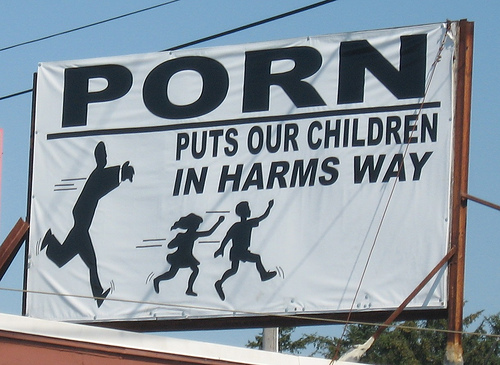
Japan and porn. (Sigh.)
While the “hardcore” stuff is supposedly illegal, and censors wield a mighty airbrush (Images of pubic hair are illegal), soft porn permeates everyday society. In every convenience store, in every bookstore, and in places you cannot avoid (including on the train,) there are images of girls in suggestive poses, scantily clad. (And that’s not to mention the questionable manga comics that some men read in public without shame.)
It’s very different from the world I grew up in, where that kind of stuff was saved for cable TV, R-rated movies, magazines hidden under mattresses.
I find myself having to have conversations with my children that neither they nor I are ready for.
Part of the problem is that I’m not sure how I feel about it.
The “junior idols” here, preteen girls who pose in T-backed underwear? I find that disgusting and legally questionable. But the other stuff? The women who are of legal age and choose to use their sexuality to make a living? It seems like a cop-out, an affront to the rest of us who make our way in the world with our clothes on. (more…)
If you ask Melanie Oda where she is from, she will answer "Georgia." (Unless you ask her in Japanese. Then she will say "America.") It sounds nice, and it's a one-word answer, which is what most people expect. The truth is more complex. She moved around several small towns in the south growing up. Such is life when your father is a Southern Baptist preacher of the hellfire and brimstone variety.
She came to Japan in 2000 as an assistant language teacher, and has never managed to leave. She currently resides in Yokohama, on the outskirts of Tokyo (but please don't tell anyone she described it that way! Citizens of Yokohama have a lot of pride). No one is more surprised to find her here, married to a Japanese man and with two bilingual children (aged four and seven), than herself. And possibly her mother.
You can read more about her misadventures in Asia on her blog, HamakkoMommy.
More Posts

by Ana Gaby | May 1, 2013 | Cultural Differences, Expat Life, Eye on Culture, Family, Indonesia, International, Living Abroad, World Moms Blog
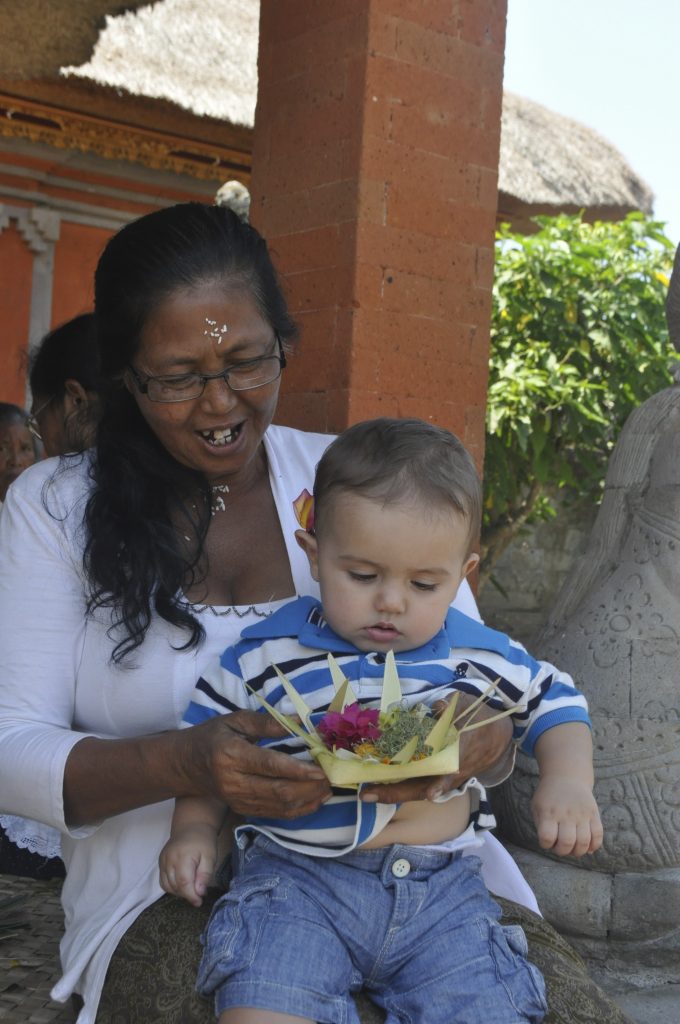 Lately I’ve read so many articles regarding the so-called “mommy-wars”. They are all over the news, on magazine articles on blogs and even on TV. Every time I read a new article I’m surprised to find that alongside fulfilling the always challenging role of being a mom the expectations and pressures we put on ourselves to be perfect in everything we do are not only unattainable but exhausting.
Lately I’ve read so many articles regarding the so-called “mommy-wars”. They are all over the news, on magazine articles on blogs and even on TV. Every time I read a new article I’m surprised to find that alongside fulfilling the always challenging role of being a mom the expectations and pressures we put on ourselves to be perfect in everything we do are not only unattainable but exhausting.
When I think of these things, I’m just so glad to be in someway sheltered from it. I live in a completely different world. I live in South East Asia, and I’m not a local, so the expectations put upon me are quite bearable and, in fact, easy to fulfill.
From the day I became a mother and gave birth to my first son in Thailand (where the nurses pampered me with massages and asked me if I would prefer the Thai, Japanese or Western menu!) to the day I came to Jakarta with a big pregnant belly and was rushed thru the express lane in the airport, being a foreign mom in South East Asia has been a fun and eye-opening experience from day one. (more…)
Ana Gaby is a Mexican by birth and soul, American by heart and passport and Indonesian by Residence Permit. After living, studying and working overseas, she met the love of her life and endeavored in the adventure of a lifetime: country-hopping every three years for her husband’s job. When she's not chasing her two little boys around she volunteers at several associations doing charity work in Indonesia and documents their adventures and misadventures in South East Asia at Stumble Abroad.
More Posts
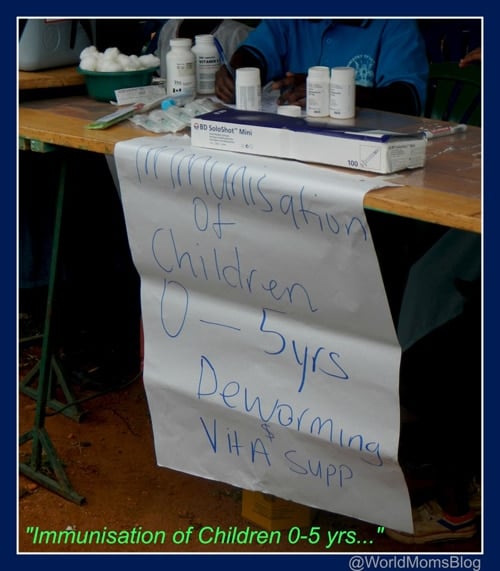
by Purnima Ramakrishnan | Apr 26, 2013 | Communication, Health, India, International, Interviews, Motherhood, Parenting, Poverty, Purnima, Social Good, Social Media, The Alchemist, Uganda, Vaccines, World Moms Blog, World Motherhood, World Voice, Younger Children
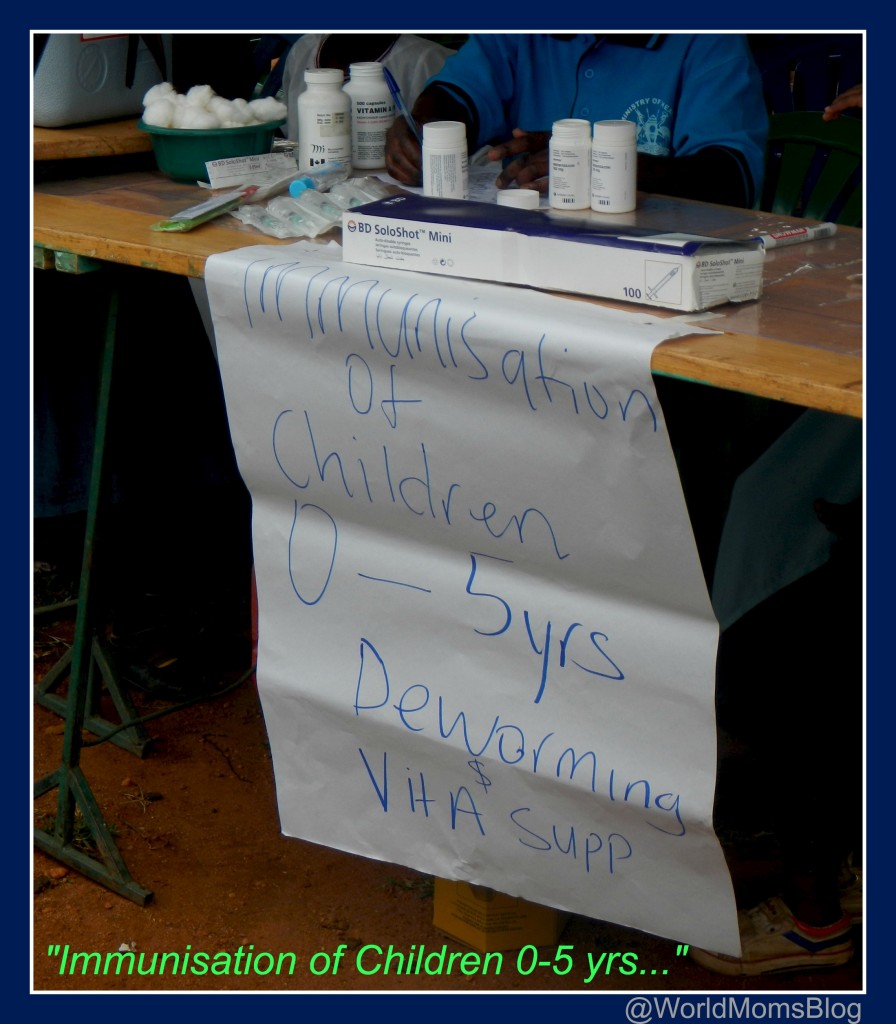 This post is a continuation of the interview with Dr. V.R. Purushotham that ran on Tuesday, April 23rd.
This post is a continuation of the interview with Dr. V.R. Purushotham that ran on Tuesday, April 23rd.
In an effort to better understand health care services in India and help expand public awareness, World Moms Blog Senior Editor, Purnima, has interviewed several physicians. The first in this series is an interview with Dr. V. R. Purushotham, a pediatrician in Bangalore, India, and is being run during World Immunization Week. He is consulting in St.John’s Medical College, Bangalore.
Purnima Ramakrishnan: What are some of the most pressing health concerns for children where you work?
Dr. V.R. Purushotham: The primary concerns are anemia, malnutrition and infections as these are major causes of poor growth and mortality in the community.
PR: What is the socioeconomic level of the area you work in? Are the families of the children rich, poor, middle class, etc.?
Dr. P: Being a referral hospital we see children from a varied strata but a majority are from a weaker socioeconomic level.
PR: What is your opinion on the alleged link between vaccines and autism, and how do you answer parents who come to you with those concerns?
Dr. P: There have been enough scientific studies to confirm that MMR vaccine is not associated with autism. The timing of the vaccine was a major reason as to why it was implicated. Previous scientific papers stating their association have been refuted. My view is that the damage caused by measles, mumps and rubella is far more than an unlikely association which is unproven.
PR: What is the biggest obstacle in India for all children to receive routine vaccinations? – Government policy? Financial resources? Supply of vaccines? Access to healthcare facilities? Trained practitioners? Geographical barriers/lack of infrastructure to reach rural areas? Cultural beliefs about vaccines?
Dr. P: The obstacles are multifactorial, but financial constraints and infrastructure would be the major ones. Community education initiatives have helped in this regard too and we are gradually seeing a positive change towards improved healthcare.
PR: And what could help overcome those obstacles the most? Political influence? Foreign resources? Medical staff training? Communication/Awareness campaign?
Dr. P: Better awareness and door to door coverage services would help us overcome these barriers .
PR: As far as you have followed World Moms Blog, do you think WMB has been making an impact in improving the vaccination and immunisation awareness in India? Or do you think blogs and internet do not reach those socio economic echelons where people do not adhere to vaccinations? And if so, how do you think WMB can help bridge the gap?
Dr. P: Any forum which discusses and promotes health from the grassroots in a positive manner is playing a constructive part in the society and WMB is one of them. Having said that, it is the personal and community based initiatives which tend to have a larger impact. I concur that the population with access to blogs would be well aware of the basic requirements of vaccination .
The fact is that you are and will make a difference to the people who do read WMB and I would urge you to keep up the good work.
This post is the first in a series of interactions with physicians and health care workers in India by Purnima Ramakrishnan on behalf of the World Moms Blog.
This is an original post to World Moms Blog by The Alchemist, our Indian mother writing from Chennai, India. Her contributions to the World Moms Blog can be found here. She also rambles at The Alchemist’s Blog.
The photograph in this post is credited to Jennifer Burden and was taken at a UNICEF Family Health Day in Kampala, Uganda, where children were being immunized in October 2012.

by Karyn Wills | Apr 25, 2013 | Cultural Differences, Eye on Culture, Human Rights, Humanity, New Zealand, World Moms Blog, World Voice
 So, you have one national day? Here in New Zealand we have two…sort of.
So, you have one national day? Here in New Zealand we have two…sort of.
The official national day for New Zealand is Waitangi Day on 6th February but I’ve always been reluctant to write about it; it’s not much of a day of celebration here. There are no buntings or fireworks; there are no parades or people getting dressed up in national costume. It’s a political hot-potato and it’s all a bit “blergh” for many Kiwis.
The problem is one of those dilemmas of humanity: conflict has arisen from good intentions.
Back in 1800s, when the world was being colonized by the English and Europeans, there was a widely held belief, by the colonisers, that unless the landscape had been changed through agriculture or construction it was considered to be unoccupied and unowned. We all know how that turned out for many indigenous peoples. To a great extent, that was no different for the resident population of Maori who had been here for over a 1,000 years by the time the Europeans arrived. The difference has been that we have a Treaty, a signed document between the representatives of Queen Victoria and various Maori chiefs of the 1840s.
The problem is this: there are two versions of the treaty. One written in English and one written in Maori. I’m sure you can all appreciate that you cannot always get a direct translation between two very different cultures and languages. The treaties don’t actually match and, in spirit, they are very different. (more…)
Karyn is a teacher, writer and solo mother to three sons. She lives in the sunny wine region of Hawke’s Bay, New Zealand in the city of Napier.
More Posts













 This post is a continuation of the interview with Dr. V.R. Purushotham that ran on Tuesday, April 23rd.
This post is a continuation of the interview with Dr. V.R. Purushotham that ran on Tuesday, April 23rd.






